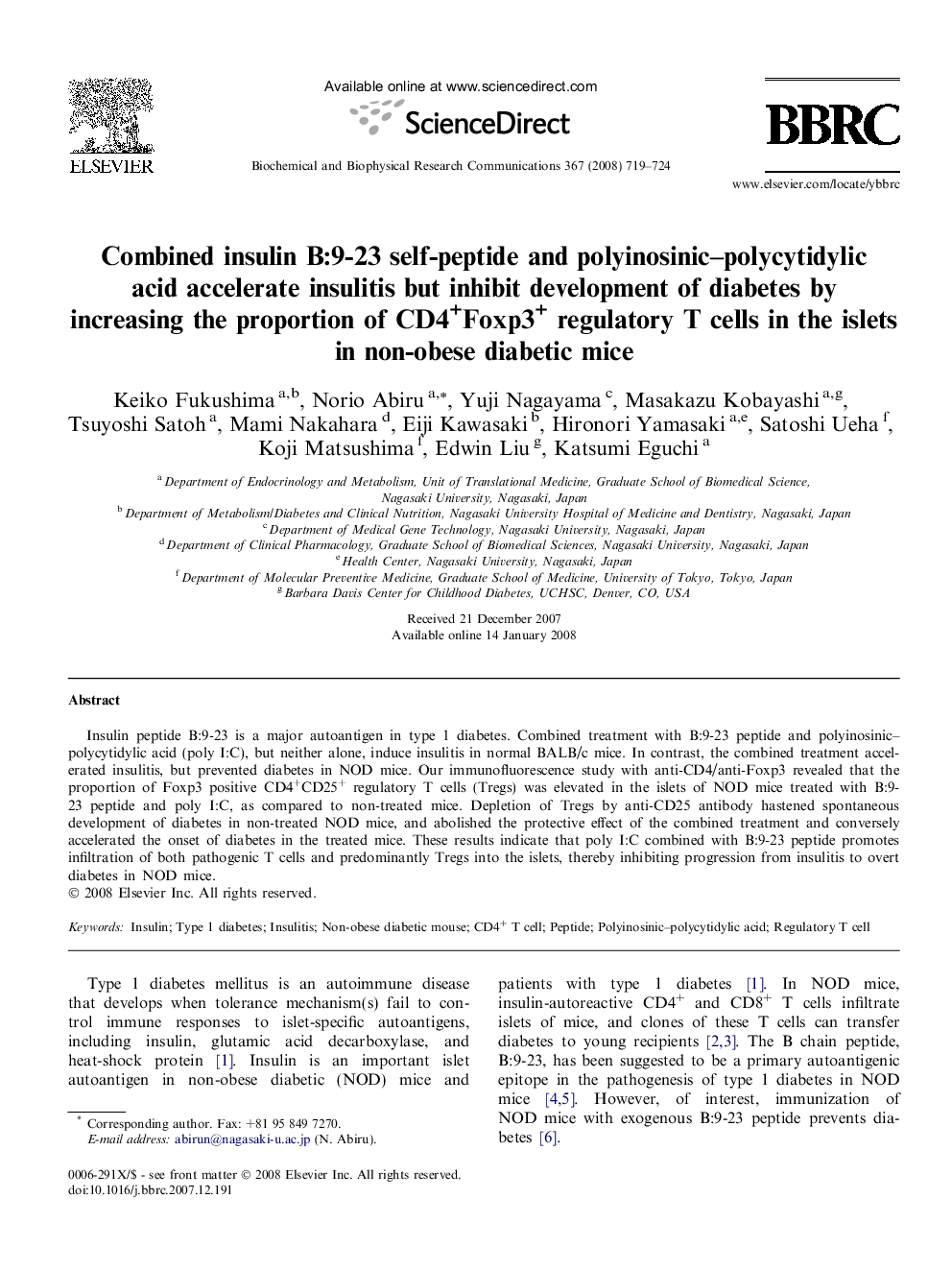| کد مقاله | کد نشریه | سال انتشار | مقاله انگلیسی | نسخه تمام متن |
|---|---|---|---|---|
| 1936383 | 1050690 | 2008 | 6 صفحه PDF | دانلود رایگان |

Insulin peptide B:9-23 is a major autoantigen in type 1 diabetes. Combined treatment with B:9-23 peptide and polyinosinic–polycytidylic acid (poly I:C), but neither alone, induce insulitis in normal BALB/c mice. In contrast, the combined treatment accelerated insulitis, but prevented diabetes in NOD mice. Our immunofluorescence study with anti-CD4/anti-Foxp3 revealed that the proportion of Foxp3 positive CD4+CD25+ regulatory T cells (Tregs) was elevated in the islets of NOD mice treated with B:9-23 peptide and poly I:C, as compared to non-treated mice. Depletion of Tregs by anti-CD25 antibody hastened spontaneous development of diabetes in non-treated NOD mice, and abolished the protective effect of the combined treatment and conversely accelerated the onset of diabetes in the treated mice. These results indicate that poly I:C combined with B:9-23 peptide promotes infiltration of both pathogenic T cells and predominantly Tregs into the islets, thereby inhibiting progression from insulitis to overt diabetes in NOD mice.
Journal: Biochemical and Biophysical Research Communications - Volume 367, Issue 4, 21 March 2008, Pages 719–724